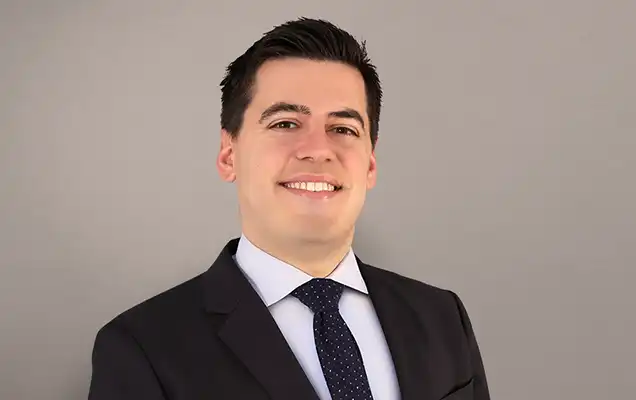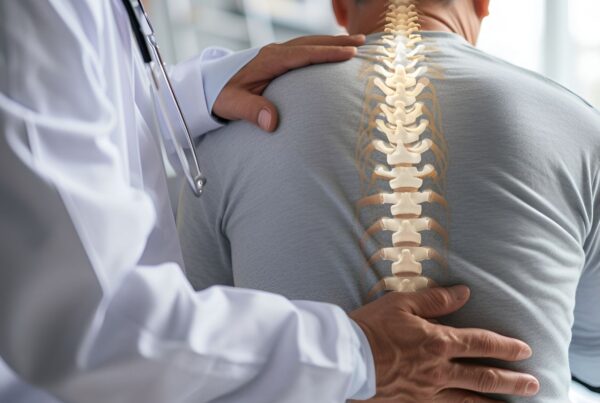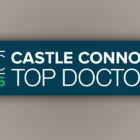Arthritis can affect the neck also known as the cervical spine, causing conditions that lead to pain, stiffness, and nerve problems. This post will explain how arthritis can cause common neck issues and the surgeries that help fix them, using terms you’ll want to know.
Cervical Spinal Stenosis: When Arthritis Narrows the Spine
Arthritis in the neck can cause cervical spinal stenosis, a condition where the spaces in the spine narrow, putting pressure on the spinal cord and nerve roots. This can cause pain, numbness, and weakness in the arms or legs. As arthritis wears down the discs between the bones, which act as shock absorbers, this leads to disc herniation and more pressure on the spine.
If pain and symptoms persist despite treatments like physical therapy or medication, surgery may be necessary to relieve the pressure.
Cervical Spondylosis: Wear and Tear in the Neck
Cervical spondylosis is a condition caused by aging and arthritis, where the discs and joints in the neck break down over time. This can cause disc degeneration, pain, and reduced movement. Mild cases can be treated with muscle relaxants, physical therapy, or other medications. However, severe cases might need surgery to take the pressure off the spinal cord or nerves.
Degenerative Disc Disease: Arthritis and Aging Combine
As people age, the discs in the neck can wear down, leading to degenerative disc disease. Arthritis speeds up this process, causing pain and stiffness. Sometimes, the discs break down completely, leading to disc herniation, which can press on nerves and cause further pain.
Surgical treatments like anterior cervical discectomy and fusion can offer relief when other treatments fail.
Anterior Cervical Discectomy and Fusion (ACDF): A Common Fix
When arthritis leads to cervical stenosis, spondylosis, or disc herniation, a procedure called anterior cervical discectomy and fusion (ACDF) is often performed. In this surgery, the surgeon removes the damaged disc from the front of the neck, replaces it with a bone graft, and fuses the bones together. This fusion stops movement in that part of the spine, which helps prevent future damage.
ACDF surgery is done under general anesthesia and is a highly effective way to relieve pain and improve nerve function.
It's time to get back
to doing what you love.
Posterior Cervical Decompression and Fusion
If the stenosis is more severe or located at the back of the neck, posterior cervical decompression and fusion may be performed. In this procedure, part of the bone or disc is removed to create more space for the spinal cord and nerves. Then, the bones are fused to ensure long-term stability.
Cervical Arthroplasty: Disc Replacement Surgery
For some patients, cervical arthroplasty, or disc replacement surgery, can be a better option than fusion. Instead of fusing the bones, the surgeon implants an artificial disc to replace the damaged one. This preserves more movement in the neck compared to fusion. Cervical disc arthroplasty is a good choice for younger patients or those who want to maintain flexibility in their neck.
Recovery and Long-Term Care After Cervical Surgery
After surgery, most patients require physical therapy to help with recovery. You may notice immediate relief from pain, but full recovery can take several months. Spinal fusion surgery or cervical artificial disc replacement provides long-term relief, but it’s important to stay active, work on posture, and strengthen the muscles to prevent further issues.
Why Choose Neurosurgeons of New Jersey for your Cervical Spine Surgery
Neurosurgeons of New Jersey has been voted the #1 Surgical Practice in New Jersey for Neurosurgery, offering exceptional care across 11 convenient locations throughout the state. The practice is distinguished not only by our top-ranking but also by the top-notch education and numerous prestigious awards held by our doctors. We accept and work with a broad range of health insurance networks including Aetna, Horizon Blue Cross Blue Shield, Oxford/United Healthcare, Cigna, Personal Injury Protection (PIP)/No-Fault for New Jersey Motor Vehicle Accidents, the Empire Plan (NYSHIP), Medicare, NJ Medicaid, and Workers’ Compensation. Even if your insurance is not listed, you may still be eligible for significant coverage, ensuring that high-quality neurosurgical care is accessible to a wide range of patients.
Physical Therapy and Non-Surgical Options
While surgery is effective for severe conditions, many people with mild symptoms can manage their neck problems with non-surgical treatments. Physical therapy, muscle relaxants, and medications may help improve flexibility and reduce pain.
If symptoms worsen or cause weakness, surgery like ACDF or cervical disc arthroplasty may be needed to correct the underlying problem.
Conclusion: Arthritis and the Cervical Spine
Arthritis can cause significant issues in the neck, such as cervical spinal stenosis, spondylosis, and degenerative disc disease. These conditions may require surgical treatments like ACDF surgery, posterior cervical fusion, or disc replacement surgery to relieve pain and restore function.
If you have common symptoms like neck pain, numbness, or weakness, consider seeing a spine specialist. Early intervention with the right treatment—whether it’s therapy or surgery—can improve your quality of life and help you feel better long-term.

About Dr. Anthony Conte
Dr Conte is a distinguished graduate of an eight-year combined BA/MD program, receiving his bachelor's degree magna cum laude from Siena College and his Doctor of Medicine from Albany Medical College. During his time in Albany, he was inducted into the prestigious Alpha Omega Alpha Honor Society. He completed his residency training at Georgetown University, where he not only served as Chief Resident but also received extensive training in minimally invasive spine surgery techniques. Following his residency, Dr Conte pursued a subspecialized fellowship in complex and reconstructive spine surgery at Northwestern University.Dr Conte’s medical practice is primarily focused on the treatment of various spinal pathologies using minimally invasive techniques. He is skilled in performing minimally invasive cervical and lumbar fusions through posterior, lateral, and anterior approaches, often utilizing imaging guidance and intraoperative navigation to minimize incisions and reduce surgical time. A strong advocate for cervical and lumbar arthroplasties and disc replacements, he aims to preserve motion in the spine and limit future degeneration. Additionally, Dr Conte specializes in managing complex spine conditions, including revision spine reconstruction surgery, scoliosis, spinal tumors, and spinal vascular lesions. His expertise also extends to treating a variety of brain conditions, such as tumors and hemorrhages.
Recent Posts:






